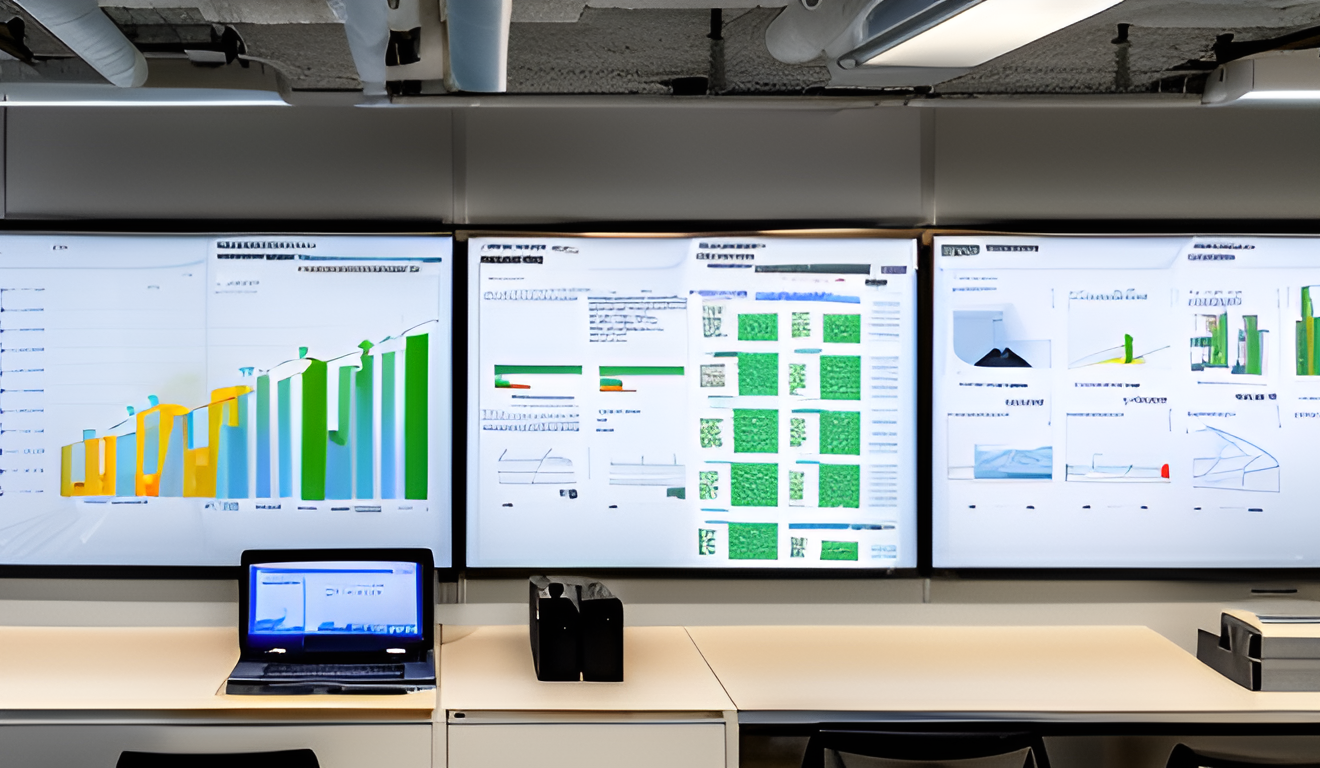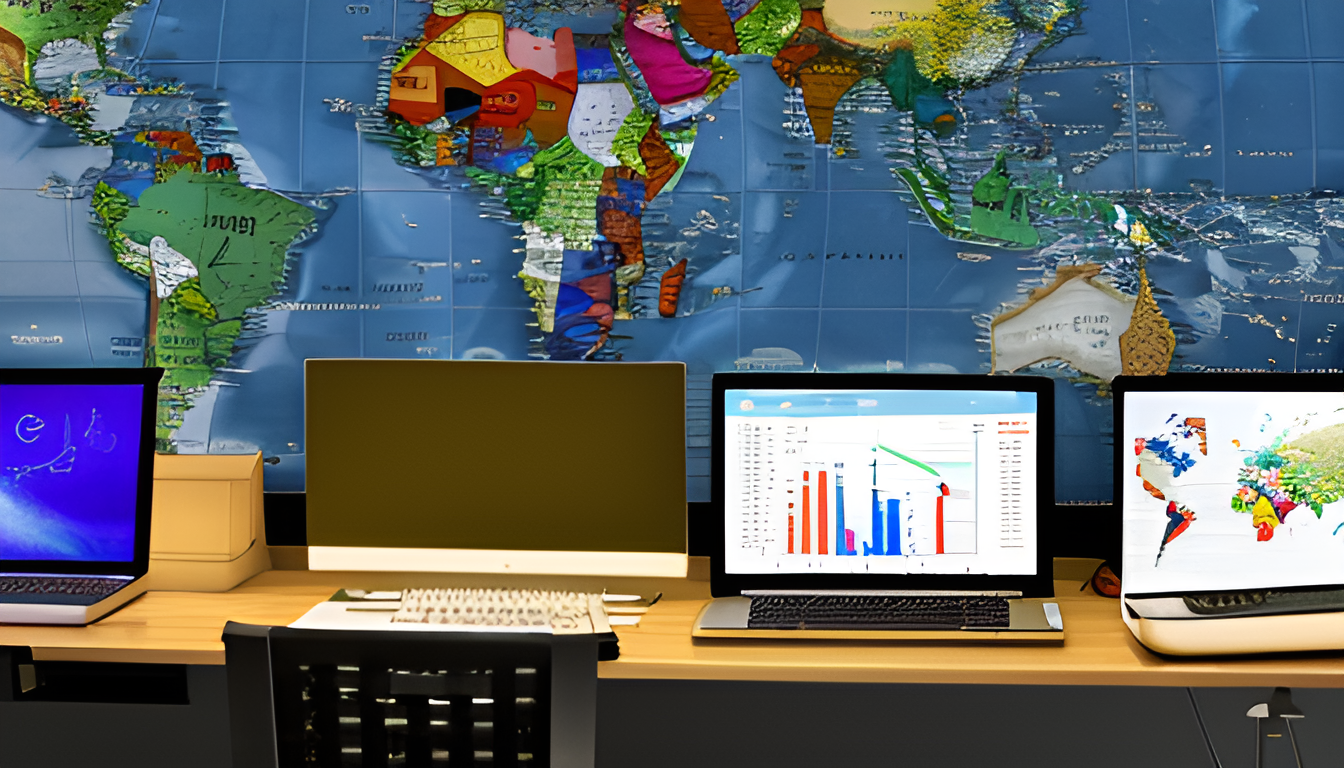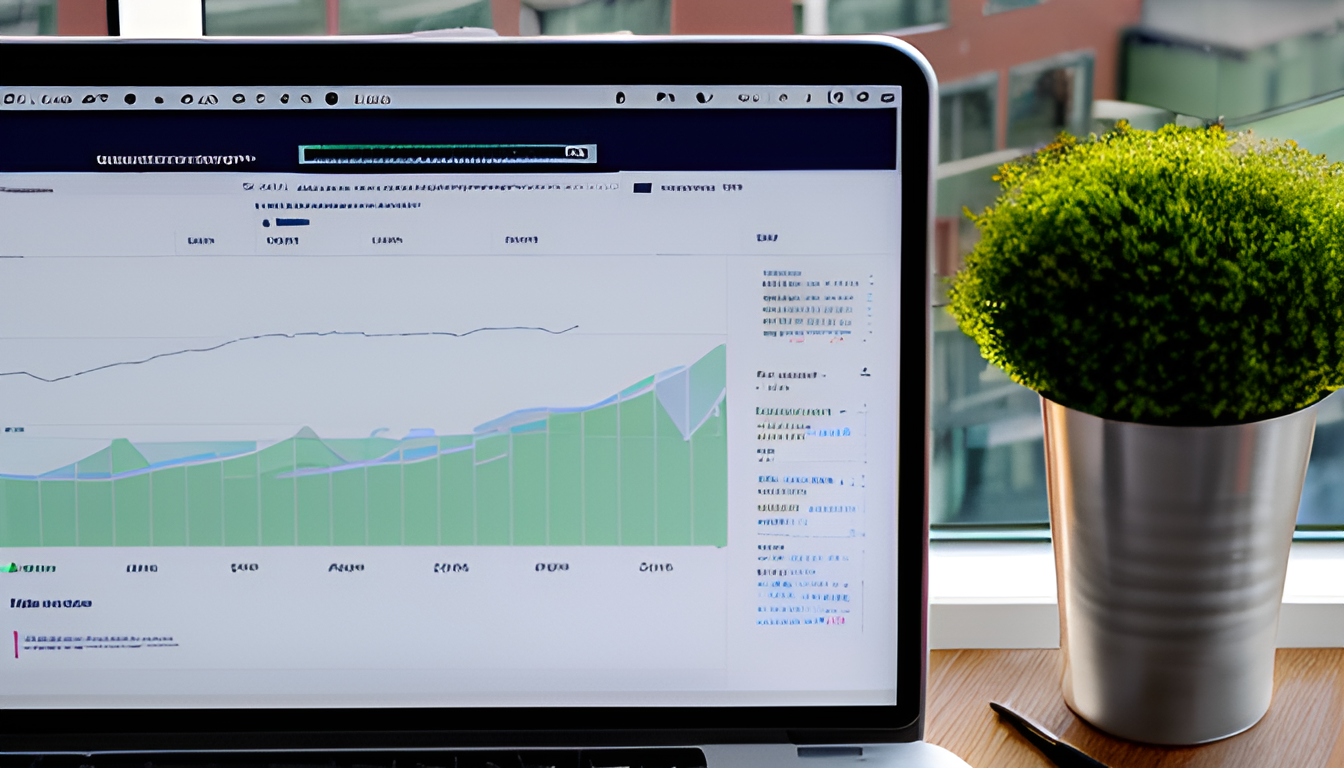AI in Sociological Research: Analyzing Trends and Behaviors

The integration of artificial intelligence (AI) in sociological research is nothing short of revolutionary. Imagine a world where researchers can sift through mountains of data in the blink of an eye, uncovering hidden patterns and trends that were once buried under layers of complexity. This is the new reality, as AI tools enhance our ability to analyze societies and understand human behavior in ways we never thought possible.
In the past, sociological research often relied on traditional methods that could be time-consuming and limited in scope. However, with the advent of AI, researchers can now leverage powerful algorithms to analyze vast datasets, leading to more accurate and insightful conclusions. This shift not only improves the quality of research but also opens up new avenues for exploring the intricate dynamics of social interactions.
One of the most exciting aspects of AI in sociology is its ability to analyze big data. By harnessing the power of machine learning and data mining, sociologists can process information from various sources, such as social media, surveys, and public records. This enables them to grasp the nuances of societal trends and behaviors across different demographics. For instance, AI can help identify correlations between economic factors and social unrest, shedding light on why certain events occur.
Moreover, AI’s role in data collection is transforming how sociologists gather information. Techniques like web scraping and sentiment analysis allow researchers to collect real-time data from online platforms, providing a wealth of information that was previously inaccessible. This innovative approach not only saves time but also enriches the research process, empowering sociologists to make informed decisions based on up-to-date insights.
Ultimately, the impact of AI on sociological research is profound. It invites us to rethink our approaches to studying society and encourages collaboration among sociologists, data scientists, and technologists. As we embrace this technological wave, we are better equipped to tackle the complex social issues of our time, paving the way for a deeper understanding of our world.
The Role of AI in Sociological Research
Artificial Intelligence (AI) is becoming a game-changer in the realm of sociological research. Imagine having the ability to sift through mountains of data in mere seconds—this is precisely what AI brings to the table. By enhancing data analysis capabilities, AI allows researchers to uncover patterns and trends that were once hidden in the noise of vast datasets. It’s like having a superpower that helps sociologists see the bigger picture without getting lost in the details.
One of the most significant advantages of AI in this field is its ability to improve predictive modeling. Researchers can now forecast social trends and behaviors with a level of accuracy that was previously unattainable. For instance, AI algorithms can analyze social media interactions to predict how public opinion may shift on various issues, providing invaluable insights for policymakers and organizations. This capability not only aids in understanding current societal dynamics but also helps in anticipating future changes.
Moreover, AI technologies facilitate the analysis of complex social dynamics. By utilizing natural language processing and machine learning, sociologists can decode sentiments and emotions expressed in online platforms. This means that researchers can gauge public sentiment on various topics, from political elections to social movements, in real time. The implications of this are profound, as it allows for a more nuanced understanding of how societal factors influence individual and group behavior.
However, the integration of AI into sociological research is not without its challenges. Researchers must remain vigilant about the ethical implications of using AI, particularly concerning data privacy and algorithmic bias. As we embrace these powerful tools, it’s crucial to ensure that they are used responsibly and that the insights drawn from them are accurate and representative of the diverse populations being studied.
In summary, AI is not just a tool; it’s a transformative force in sociological research. Its ability to enhance data analysis, improve predictive modeling, and unravel complex social dynamics is paving the way for a deeper understanding of human behavior and societal trends. As we continue to explore this intersection of technology and sociology, the potential for groundbreaking discoveries is immense.
Data Collection Techniques
In the realm of sociological research, the advent of artificial intelligence has ushered in a new era of data collection techniques that are not only efficient but also remarkably insightful. Traditional methods of gathering data often fell short in terms of speed and scope, but with AI, researchers can now tap into a vast ocean of information. Imagine having the ability to sift through millions of social media posts or online articles in a matter of seconds—this is the power that AI brings to the table.
One of the most exciting techniques is web scraping. This method allows researchers to automatically extract data from websites, enabling them to gather real-time information on public sentiment, trends, and behaviors. For instance, by analyzing tweets about a current event, sociologists can gauge public opinion almost instantaneously. This technique is not just about quantity; it also enhances the quality of insights by providing a more nuanced understanding of social phenomena.
Another innovative approach is sentiment analysis, which employs natural language processing to determine the emotional tone behind a series of words. This technique can be incredibly revealing, as it helps researchers understand how people feel about specific issues or events. By analyzing comments or reviews, sociologists can uncover underlying sentiments that might not be immediately visible through traditional surveys. Imagine being able to quantify feelings of joy, anger, or sadness across a population—this is what sentiment analysis achieves.
| Technique | Description | Benefits |
|---|---|---|
| Web Scraping | Automatically extracts data from websites. | Real-time insights into trends and behaviors. |
| Sentiment Analysis | Analyzes emotional tone in text. | Quantifies public feelings on various issues. |
In essence, these data collection techniques powered by AI not only enhance the efficiency of sociological research but also open up new avenues for understanding complex social dynamics. By leveraging these tools, researchers can paint a more accurate picture of society, leading to informed decisions and policies that resonate with the ever-evolving human experience.
Machine Learning in Sociological Analysis
Machine learning is rapidly becoming a game changer in the field of sociological analysis. By leveraging advanced algorithms, researchers can sift through mountains of data to uncover patterns and correlations that might otherwise go unnoticed. Imagine trying to find a needle in a haystack; machine learning acts as a magnet, pulling out the most relevant insights from a vast sea of information.
One of the most exciting aspects of machine learning in sociological research is its ability to enhance predictive modeling. For instance, by analyzing historical data, machine learning can help forecast future social trends, such as shifts in public opinion or changes in consumer behavior. This predictive capability allows sociologists to not only understand what has happened in the past but also to anticipate future developments. It’s like having a crystal ball that provides a glimpse into societal changes before they fully unfold.
Moreover, machine learning algorithms can categorize and analyze qualitative data, such as open-ended survey responses or social media interactions. This process, known as sentiment analysis, helps researchers gauge public sentiment on various issues, from political elections to social movements. By quantifying emotions expressed in text, sociologists can better understand the nuances of human behavior and societal reactions.
However, it’s essential to recognize that machine learning is not without its challenges. Data quality is paramount; if the input data is flawed or biased, the results will be too. Additionally, researchers must remain vigilant about the ethical implications of their findings. The algorithms must be transparent and accountable to ensure they do not perpetuate existing biases or inequalities.
In summary, machine learning is revolutionizing sociological analysis by providing powerful tools for data interpretation and prediction. As researchers continue to embrace these technologies, the insights gained will undoubtedly deepen our understanding of the complex tapestry of human behavior and social dynamics.

AI and Big Data
The intersection of AI and big data is a game changer for sociological research, opening up a world of possibilities that were once thought to be out of reach. Imagine having access to a treasure trove of information from countless sources, all analyzed in real-time to reveal intricate social patterns and behaviors. This is the power of AI when paired with big data. It allows researchers to delve deep into the complexities of human interactions and societal trends like never before.
With the capability to process vast amounts of data, AI can uncover insights that might remain hidden in traditional research methods. For instance, social media platforms generate enormous datasets daily. By employing AI algorithms, researchers can analyze these datasets to identify trends in public opinion, social movements, and even predict future behaviors. Here are some key areas where AI and big data are making an impact:
- Predictive Analytics: AI models can forecast societal trends by analyzing historical data, helping policymakers make informed decisions.
- Behavioral Insights: Understanding how different demographics interact online can reveal critical insights into societal behavior.
- Real-Time Analysis: AI enables researchers to monitor social dynamics as they unfold, allowing for immediate responses to emerging issues.
However, harnessing the power of AI and big data also comes with its challenges. Data quality is paramount; if the data is flawed, the conclusions drawn will be equally unreliable. Additionally, the integration of diverse datasets from various sources can be complex, requiring sophisticated methodologies to ensure accuracy. As researchers navigate these challenges, the potential rewards are immense.
In summary, the convergence of AI and big data is revolutionizing sociological research, providing tools that enhance our understanding of the intricate tapestry of human society. As we continue to explore this synergy, the insights gained will undoubtedly shape the future of sociology, offering a clearer picture of the world we live in.
Ethical Considerations
The integration of artificial intelligence in sociological research brings forth a myriad of ethical considerations that cannot be overlooked. As researchers delve into the vast sea of data, questions surrounding data privacy emerge. How do we ensure that individuals’ personal information remains confidential while still extracting valuable insights? This challenge is akin to walking a tightrope—balancing the need for information with the rights of individuals.
Another pressing issue is the potential for bias in algorithms. AI systems are only as good as the data they are trained on. If the input data contains biases, the outcomes will likely reflect those biases, leading to skewed interpretations of social phenomena. This can perpetuate stereotypes and exacerbate social inequalities. Therefore, researchers must be vigilant, employing techniques to identify and mitigate bias at every stage of their analysis.
Moreover, the implications of automated decision-making on society raise ethical dilemmas. As AI systems begin to influence policy decisions or social interventions, we must ask ourselves: who is accountable for the outcomes? Are we ready to trust machines with decisions that can significantly impact human lives? This uncertainty highlights the need for transparency in AI processes, ensuring that stakeholders understand how decisions are made.
To navigate these ethical waters, sociologists and data scientists should consider implementing a framework that addresses key ethical principles:
- Transparency: Clearly communicate the methods and data used in AI applications.
- Accountability: Establish who is responsible for AI-driven decisions.
- Fairness: Actively work to eliminate biases in data and algorithms.
- Privacy: Safeguard personal information through robust data protection measures.
In conclusion, while the potential of AI in sociological research is vast, it is imperative that researchers approach its integration with a strong ethical compass. By prioritizing ethical considerations, we can harness the power of AI responsibly, ultimately enriching our understanding of society without compromising individual rights.
Case Studies of AI in Sociology
The application of artificial intelligence in sociological research has produced fascinating case studies that illustrate its potential to tackle complex social issues. One notable example is the use of AI for analyzing social media data to understand public sentiment during political elections. Researchers employed sentiment analysis algorithms to sift through thousands of tweets, providing insights into voter mood and predicting election outcomes with remarkable accuracy. This method not only showcased AI’s ability to handle vast datasets but also emphasized the importance of real-time analysis in understanding societal trends.
Another compelling case study comes from the realm of urban sociology, where AI technologies have been utilized to study patterns of urban migration. By analyzing patterns in mobility data, researchers have been able to identify the factors driving people to move from rural to urban areas. This analysis revealed critical insights into economic opportunities, social networks, and even environmental factors influencing migration trends. The findings were instrumental in informing local governments about necessary infrastructure developments and social services.
Moreover, AI has been pivotal in addressing issues of inequality and discrimination. For instance, a study utilized machine learning algorithms to analyze hiring practices across different industries. By examining historical data, researchers identified biases in recruitment processes that favored certain demographics over others. This study not only highlighted the pervasive issue of bias in hiring but also led to recommendations for more equitable practices, demonstrating how AI can be a tool for social justice.
These case studies exemplify how AI can offer profound insights into human behavior and societal dynamics. However, they also serve as a reminder of the ethical considerations involved in using AI for sociological research. As we continue to explore these technologies, it is essential to remain vigilant about the implications of our findings and the methodologies we employ.
Challenges in Implementation
While the integration of AI in sociological research holds immense potential, it is not without its challenges. One of the most significant hurdles is the issue of data quality. Inaccurate or biased data can lead to misleading conclusions, and researchers often find themselves sifting through vast amounts of information to identify reliable sources. This is akin to searching for a needle in a haystack, where the haystack is continuously growing as new data floods in.
Another challenge is the integration of interdisciplinary approaches. Sociologists must collaborate with data scientists, statisticians, and technologists to fully harness the power of AI. This collaboration can be complicated by differing terminologies and methodologies, which can create barriers to effective communication and understanding. Imagine trying to assemble a puzzle where each piece has its own unique shape and color, making it difficult to see the bigger picture.
Additionally, there is a pressing need for specialized skills among researchers. Many sociologists may not have the technical expertise required to implement advanced AI algorithms or interpret complex data sets. This skills gap can hinder the adoption of AI technologies in research, leaving some researchers feeling overwhelmed or intimidated by the tools at their disposal.
Moreover, ethical considerations are paramount. The use of AI raises questions about data privacy and the potential for algorithmic bias. Researchers must navigate these ethical waters carefully, ensuring that their studies do not inadvertently reinforce existing inequalities or violate individuals’ rights. For instance, if an AI model is trained on biased data, it may perpetuate those biases in its findings, leading to harmful societal implications.
In summary, while the challenges in implementing AI in sociological research are significant, they are not insurmountable. By addressing issues related to data quality, fostering interdisciplinary collaboration, enhancing skill sets, and prioritizing ethical considerations, the field can move forward in leveraging AI’s capabilities to gain deeper insights into human behavior and societal trends.

Future Trends in AI and Sociology
The landscape of sociological research is on the brink of a revolution as artificial intelligence continues to evolve. Imagine a world where sociologists can predict societal shifts with the precision of a weather forecast! This is not just a dream; it’s becoming a reality. As AI technologies advance, we can expect several exciting trends that will reshape our understanding of human behavior and social dynamics.
One of the most promising trends is the enhancement of predictive analytics. Researchers are beginning to harness AI’s ability to analyze vast datasets quickly, allowing them to identify patterns that were previously invisible. For instance, using machine learning algorithms, sociologists can predict how social media trends influence public opinion in real time. This capability could lead to more timely interventions in social issues, potentially altering the course of community engagement.
Moreover, the integration of natural language processing (NLP) is set to transform qualitative research. By analyzing text data from social media, forums, and news articles, AI can help researchers understand the sentiment and emotions behind societal trends. This could provide a richer context to quantitative data, offering a more holistic view of societal dynamics.
However, with these advancements come challenges. As AI continues to permeate sociological research, there will be an increasing need for interdisciplinary collaboration. Sociologists will have to work closely with data scientists and technologists to ensure that the methodologies used are both ethical and effective. This collaboration will be crucial in addressing potential biases in AI algorithms, which could skew research findings and lead to misinterpretations of societal behaviors.
In summary, the future of AI in sociology holds immense potential. With advancements in predictive analytics, natural language processing, and interdisciplinary collaboration, researchers will be better equipped to navigate the complexities of human behavior. As we embrace these changes, we must also remain vigilant about the ethical implications of our work, ensuring that technology serves to enhance our understanding of society, not hinder it.
Collaborative Efforts in Research
In the rapidly evolving landscape of sociological research, collaboration has emerged as a crucial element for success. The integration of artificial intelligence (AI) into this field demands a multidisciplinary approach that brings together experts from various domains. Sociologists, data scientists, and technologists must unite their strengths to tackle complex social issues effectively. This collaborative synergy not only enhances the quality of research but also fosters innovation and creativity in problem-solving.
Imagine a scenario where sociologists analyze human behavior patterns while data scientists develop algorithms to interpret vast datasets. This partnership can lead to groundbreaking insights that would be difficult to achieve independently. For instance, sociologists can provide the contextual understanding of societal trends, while data scientists can leverage AI to uncover hidden correlations within the data. Together, they can create a more comprehensive picture of social dynamics that informs policy and decision-making.
Moreover, the collaborative efforts in research can be illustrated through various successful projects. Here are some key areas where this teamwork shines:
- Policy Development: Joint research initiatives can inform policymakers about the social implications of their decisions, ensuring that strategies are data-driven and effective.
- Public Health: Collaboration between sociologists and health data analysts has been pivotal in understanding the social determinants of health, leading to better health outcomes.
- Urban Planning: By combining sociological insights with AI-driven urban analytics, cities can be designed to better meet the needs of their populations.
In conclusion, the power of collaborative efforts in sociological research cannot be overstated. By pooling resources and expertise, researchers can unlock new dimensions of understanding that ultimately lead to more effective solutions for the challenges facing society today. As we move forward, fostering these collaborations will be essential for harnessing the full potential of AI in sociology.
Conclusion: The Impact of AI on Sociology
In wrapping up our exploration of AI’s integration into sociological research, it’s clear that we stand on the brink of a transformative era. The infusion of artificial intelligence into sociology is not just a trend; it’s a game-changer that is reshaping how we understand societal dynamics and human interactions. Imagine being able to sift through mountains of data in seconds, uncovering insights that would have taken traditional methods years to reveal. This is the power of AI.
As we’ve discussed, AI enhances our ability to analyze complex social patterns, making it easier to identify trends and behaviors that define our societies. However, with great power comes great responsibility. The ethical implications of using AI in this field cannot be overlooked. Issues such as data privacy, algorithmic bias, and the potential for automated decision-making to perpetuate inequalities are critical concerns that researchers must address.
Moreover, collaboration is key. The intersection of sociology, data science, and technology fosters a multidisciplinary approach that can tackle some of the most pressing social issues of our time. By working together, experts can harness the full potential of AI, ensuring that its benefits are maximized while minimizing risks.
As we look to the future, the potential advancements in AI promise even greater insights into human behavior. We can anticipate improved predictive analytics that not only enhance our understanding but also inform policy decisions that positively impact communities. In conclusion, the impact of AI on sociology is profound and multifaceted, paving the way for a deeper comprehension of the intricate tapestry of human society.
Frequently Asked Questions
- How is AI transforming sociological research?
AI is revolutionizing sociological research by enhancing data analysis capabilities, improving predictive modeling, and uncovering social dynamics that were previously hard to detect. It’s like having a super-powered magnifying glass that lets researchers see the intricate details of human behavior!
- What are the innovative data collection techniques used in AI?
Researchers are leveraging techniques like web scraping and sentiment analysis to gather massive amounts of data efficiently. Imagine being able to sift through mountains of information in a fraction of the time it would normally take—this is what AI brings to the table!
- What role does machine learning play in sociological analysis?
Machine learning algorithms help identify patterns and correlations in social data, allowing for more accurate conclusions about human behavior. It’s similar to having a smart assistant that learns from past data to predict future trends!
- Are there ethical concerns with using AI in sociology?
Absolutely! The use of AI raises important ethical questions, especially regarding data privacy, algorithm bias, and the consequences of automated decision-making on society. It’s crucial to navigate these waters carefully to ensure responsible use.
- What are some challenges faced in implementing AI in sociological research?
Challenges include ensuring data quality, integrating interdisciplinary approaches, and the need for researchers to possess specialized skills. Think of it as assembling a puzzle where each piece must fit perfectly to reveal the complete picture!
- What does the future hold for AI in sociology?
The future looks bright! With ongoing advancements, we can expect improved predictive analytics and a deeper understanding of human behavior. It’s like peering into a crystal ball that reveals the complexities of social interactions.













